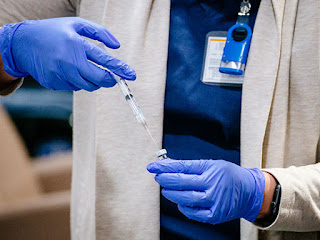Vaccines and immunization: Vaccine safety
Vaccination is one of the best ways to prevent illness. Overall, the vaccine is estimated to save 2 to 3 million lives each year. Together with the government, vaccine manufacturers, scientists, and medical professionals, the WHO Vaccine Safety Program continues to support vaccine safety monitoring. This helps ensure that the vaccine is safe for you and your family. The most commonly used vaccines today have been in use for decades, with millions of people safely receiving the vaccine each year. Several new vaccines are also under development. Once approved, they should help prevent other life-threatening illnesses such as Zika virus and Nipah virus, and improve the effectiveness of existing vaccines. Like all medicines, all vaccines must undergo extensive and rigorous testing before being introduced into the country. After use, it should be continuously monitored to ensure it is safe for the people who receive it. Vaccines are very safe. As with all medicines, side effects can occur after vaccination. However, these are usually very minor and short-lived Arm pain or low-grade fever. More serious side effects can occur, but they are extremely rare. people are much more likely to be seriously affected by the disease than by vaccines. Vaccine-preventable illnesses such as measles, meningitis, and polio can be fatal or cause serious illness or disability. As soon as a promising vaccine is identified, it is first subjected to a thorough laboratory test. This includes careful research and testing of vaccines and their ingredients. These tests evaluate the safety of the vaccine and how well it prevents the disease. If a positive test result is obtained, the manufacturer can apply it to conduct a clinical trial. These studies usually involve thousands of healthy volunteers voluntarily and their safety is guaranteed by national regulators. In the countries where vaccines are manufactured, national or regional regulators oversee the development of vaccines. This includes approval of clinical trials, evaluation of results, and regulatory decisions. In making decisions, regulatory agencies need to refer to very strict international standards for acceptable ethical clinical practices. Once the vaccine is developed, national regulators will decide whether to introduce the vaccine in their own countries. WHO provides information to support this process through a comprehensive assessment of available evidence and regularly updated position papers on vaccines.



Comments
Post a Comment